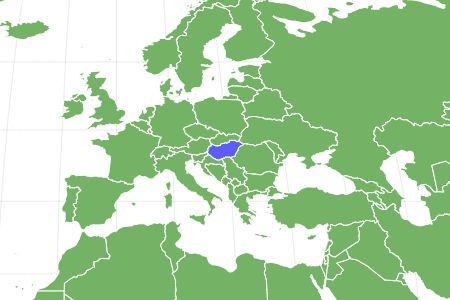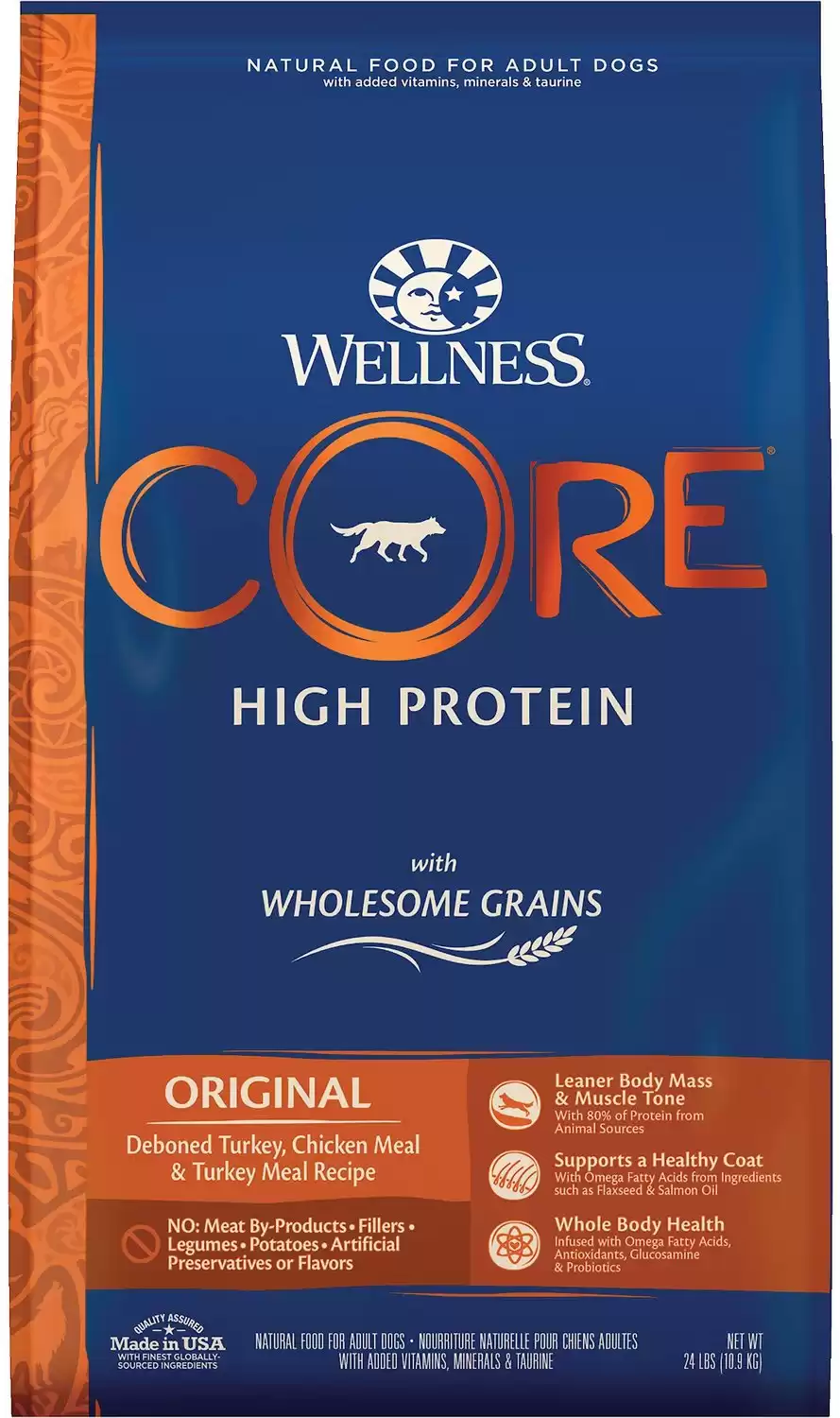Mudi
Canis lupus
Mudi dogs have a reputation for being able to control a herd of 500 sheep.
Advertisement
Mudi Facts
- Fun Fact
- Mudi dogs have a reputation for being able to control a herd of 500 sheep.
- Temperament
- Smart and energy-filled
- Diet
- Omnivore
Mudi as a Pet:
- General Health
- Energy Level
- Shedability
- Trainability
- Intelligence
- Tendency to Chew
- Size
- Family and kid friendliness
- Yappiness / Barking
- Moderate
- Separation Anxiety
- Moderate
- Preferred Temperature
- Average climate
- Exercise Needs
- High
- Friendly With Other Dogs
- High
- Pure bred cost to own
- $1300
- Dog group
- Herding
- Male weight
- 24-29 lbs
- Female weight
- 18-24 lbs
This post may contain affiliate links to our partners like Chewy, Amazon, and others. Purchasing through these helps us further the A-Z Animals mission to educate about the world's species.
Mudi dogs, originally from Hungary, are able to keep track of a herd of 500 sheep or serve in search and rescue because of their laser-focused attention and alert observation.
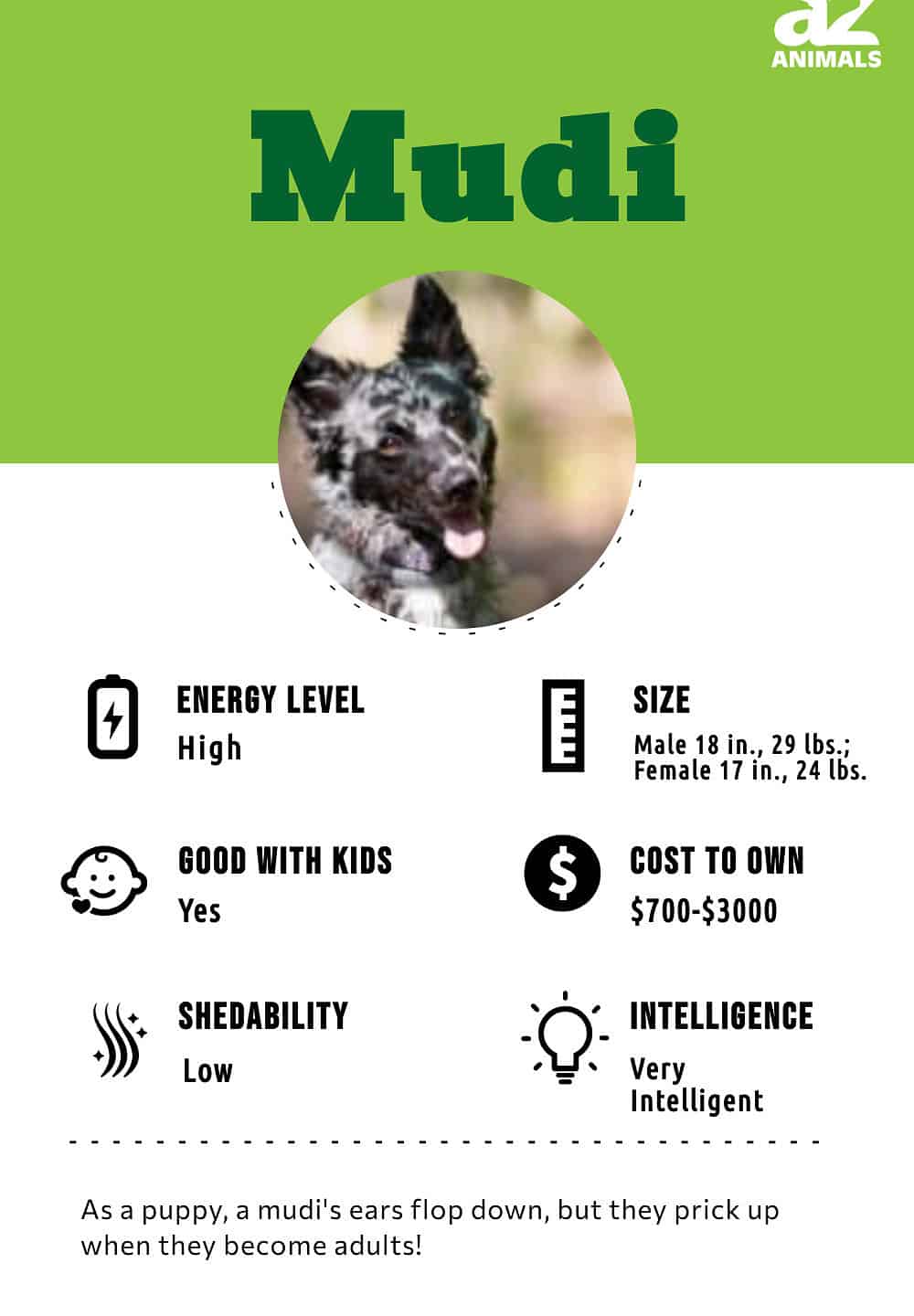
Have you ever heard of the Mudi? If not, it may be because there are possibly only a few thousand of these dogs in the world. Despite being few in population, the Mudi dog has a long list of favorable qualities. This energy-filled dog has an affectionate temperament and a high level of intelligence. It’s a part of the herding group.
See all of our expert product reviews.
This dog’s history dates back to 19th century Hungary. It descends from the Pumi dog (a sheepdog) and the German Spitz. They were bred to herd sheep for long hours in the expansive fields of Hungary. Today, most of these dogs live in Finland and Hungary with a few scattered in Europe and North America. It’s ability to be laser-focused and alert when keeping a herd of sheep together, has made it a good search and rescue dog today. When it is off duty, this dog is playful and affectionate with a family.
3 Different Mixes
Mudi mixes are all relatively recent designer breeds and tend to result in a spunky and inquisitive dog:
- Mudi Scottish Deerhound – the mix of a Mudi and a Scottish Deerhound.
- Mudi Toy Fox Terrier – the mix of a Mudi and a Toy Fox Terrier.
- Mudicollie – the mix of a Mudi and a Border Collie.
3 Pros and Cons of Ownership
| Pros | Cons |
|---|---|
| Easy grooming work A Mudi’s coat is easy to keep in good condition with a simple brushing once a week. Coat colors include black, white, yellow, gray, and brown. | An occasional wanderer These quick-moving dogs have a tendency to wander away on adventures, if a home’s fence isn’t secure. |
| Compatible with kids This dog is playful and at ease with children who treat it with respect and care. | Difficult to find and costly Its sparse population, especially in the United States, can make it difficult to locate a litter of puppies, and the price can be a factor at an average of $1300 per puppy. |
| An impressive watchdog No noise or movement escapes the attention of this pooch. It serves as an impressive watchdog for a household. | An avid digger This breed loves to dig. If the behavior is not corrected, it can turn an owner’s yard into a collection of holes. |
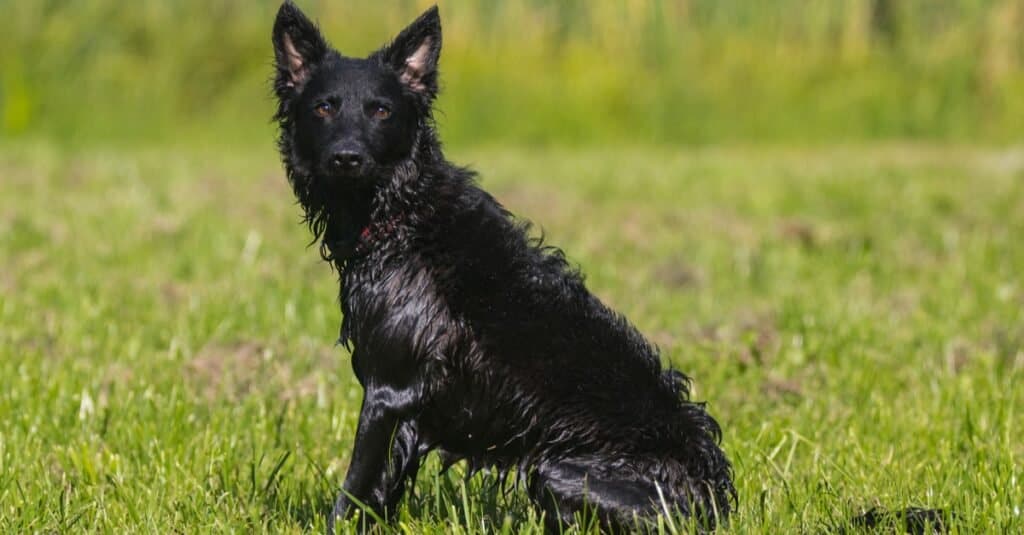
Although Mudis come in a variety of colors and are often brindled, this one is solid black.
©Lisjatina/Shutterstock.com
Size and Weight
An adult male dog grows to a height of 18 inches measuring from its paw up to its shoulder. Fully grown females can achieve a height of 17 inches. When it comes to weight, an adult male can reach 29 pounds while a female’s full weight is 24 pounds. When a puppy is eight weeks old, it should register a weight ranging from 8 to 9 pounds. This canine stops growing at 9 to 12 months old.
Health and Entertainment for your Mudi
See all of our expert product reviews.
| Height (Male) | 18 inches |
| Height (Female) | 17 inches |
| Weight (Male) | 29 pounds |
| Weight (Female) | 24 pounds |
Common Health Issues
Patellar luxation is a common health issue of this Hungarian dog. This condition happens when the kneecap shifts out of its proper place resulting in lameness. While it can sometimes resolve itself, a severe case may require physical therapy or surgery. This breed is also vulnerable to elbow dysplasia. A dog with this issue has an elbow joint that doesn’t fit together in the proper fashion. It’s an inherited condition and can be resolved with surgery. Cataracts are another potential medical issue for this canine. They appear as a thin film over the dog’s eyes. Although they can ultimately cause blindness, some dogs function fairly well for years with cataracts before having surgery.
The most common health issues:
- Patellar luxation
- Elbow dysplasia
- Cataracts
Temperament & Behavior
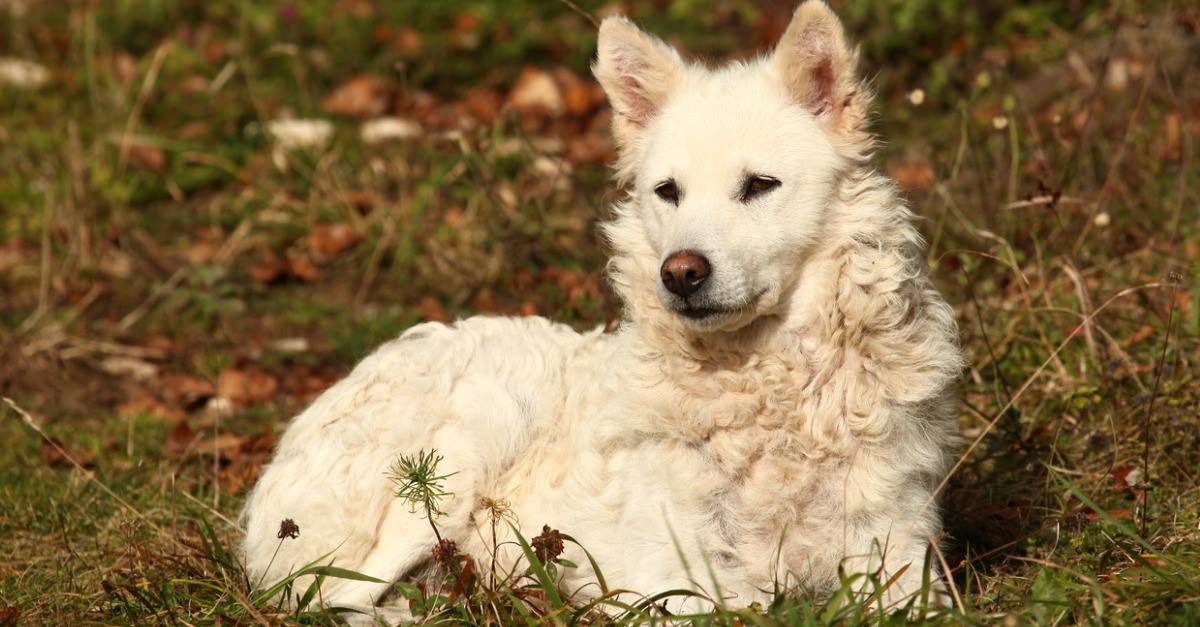
Mudis, like this all-white one, do best on a farm or in a home with a big yard and an active family.
©iStock.com/UroshPetrovic
A Mudi is one of those canines that likes to be on the move. Not surprisingly, that’s one of the most common traits found in a herding dog. A family looking to add a Mudi to their household can expect relaxed, affectionate behavior from this sweet-natured pooch. A big farm or a home with a large yard is the most appropriate place for this pet.
This dog is a really good choice for an energetic family that likes to go camping, visit local parks, attend festivals, and otherwise enjoy other outdoor activities. Its friendly personality makes it welcome at almost any gathering. This pooch is happiest when it’s investigating its surroundings.
Care
Learning all the facts about the diet, healthcare, grooming, and exercise requirements of this pet is the easiest way to excel as its new owner. The basic routine of care differs depending on whether someone owns a puppy or an adult canine. Look at some of the unique needs of each one.
Best Dog Food
The types of nutrients in a puppy or adult dog’s diet can help it to maintain great health. Therefore, it’s important to choose a high-quality dog food that nourishes your Mudi for lifelong health. So, check out some of the basic dietary elements.
Mudi puppy food: Along with supporting its brain and vision health, Omega 3 and 6 fatty acids are responsible for maintaining the healthy skin and coat of this pup. Carbohydrates are essential for every puppy but are especially critical for active breeds like the Mudi. Lean chicken and turkey are good sources of protein nourishing this puppy’s muscles, tissue, and joints. Whitefish is another source of protein as well as calcium. These nutrients are beneficial to a breed vulnerable to knee and elbow issues. These puppies need fiber in their diet to help them properly digest a balanced diet.
Mudi adult dog food: Vitamin E keeps an adult dog’s metabolism working efficiently as it ages. The proper amount of vitamin E also contributes to the continued health of this dog’s eyes. Protein is essential in supporting healthy tissue and muscles in an aging Mudi. Carbohydrates are necessary to provide this dog with all the energy it needs to run and play. Vitamin C helps to fight off respiratory illness and other ailments. The fiber in this dog’s daily diet along with access to fresh water helps keep its digestive processes in good working order.
A-Z Animals picks Wellness CORE Dry Dog Food with Wholesome Grains, High Protein Dog Food as the best dog food for Mudi dogs.
Importantly, dogs like the Mudi that can have joint problems including patellar luxation and elbow dysplasia need glucosamine in their diet. That’s because it’s clinically proven to protect joint mobility. Plus, the real chicken and turkey in this recipe are natural sources of these essential nutrients, as well as taurine which is good for the eyes, since the Mudi can develop cataracts.
If you like the sound of that, you can find Wellness CORE Wholesome Grains High Protein dog food on amazon.
- Turkey and chicken meal and deboned chicken with wholesome grains
- 34% protein promotes lean body mass and muscle tone
- Omega fatty acids support healthy skin and coat
- Glucosamine for strong joints, probiotics for digestive health and taurine for a healthy heart
- No poultry by-products, wheat, wheat gluten, corn, soy, artificial colors, or preservatives
Maintenance and Grooming
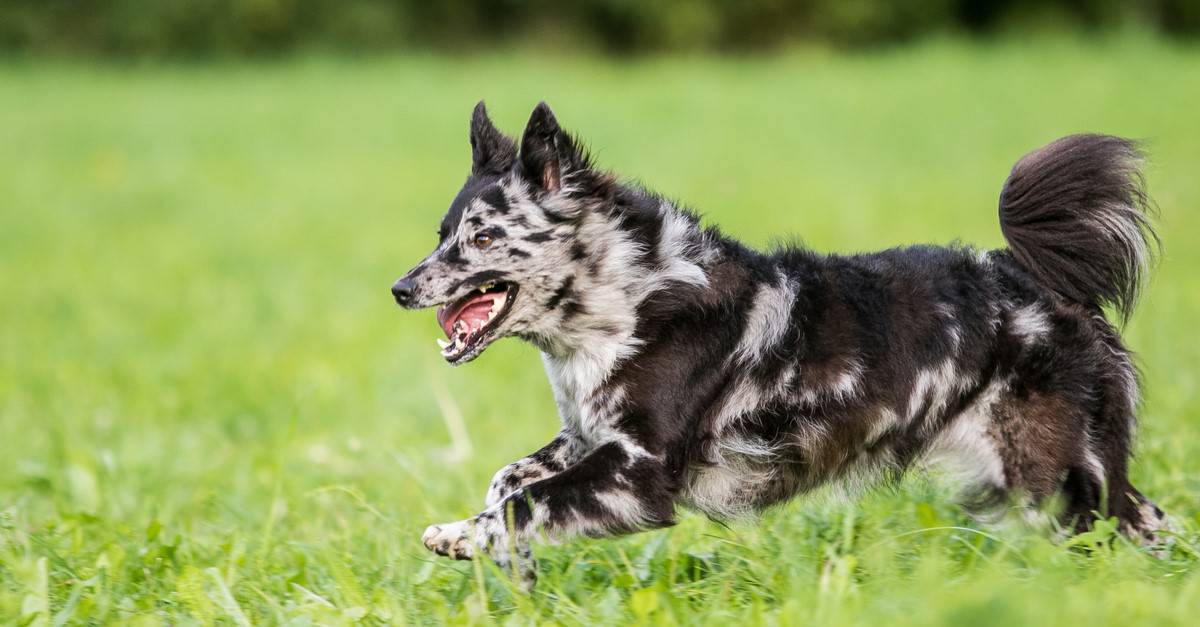
Mudis require only a simple grooming regimen and sheds only seasonally.
©Aneta Jungerova/Shutterstock.com
One of the many favorable qualities of this pet is its simple grooming regimen. Its short coat of wavy hair needs to be brushed only once each week. It makes sense. These dogs were bred to be hard-working sheepherders. They don’t have the time to stop for a complicated grooming routine!
How much does a Mudi dog shed? These dogs are known to shed on a seasonal basis. A slicker brush is perfect for removing dead and loose hair especially during those seasonal periods of shedding. Otherwise, a brush with boar’s hair bristles is effective at getting rid of tangles and smoothing its coat of black, brown, gray, and other colors.
Training
Another one of the many pleasant facts about this dog is that it’s easy to train. An alert, focused mind allows it to learn its obedience lessons very quickly. Along with that, this dog is known for its ability to learn fun tricks like shake hands (paws), rollover, play dead, and bow. Teaching a Mudi tricks like this is an easy way for a family to bond with this dog.
Exercise
Running is the favorite exercise of this dog. One that’s trained to come when called can be taken to an open field for a run off the leash. Time spent at the dog park is another option to think about.
An agility course is an entertaining exercise idea. Leaping over jumps, running through tunnels, and climbing ramps is this dog’s idea of a lot of fun!
Ensuring this dog has 60 minutes of exercise daily keeps its mind and body stimulated and healthy. It may even extend its lifespan.
This dog isn’t a good choice for people in apartments. They need a lot of space to stretch their legs.
Puppies
A Mudi puppy needs just as much space as an adult dog to move, stretch its legs, and get its heart pumping. A fenced-in space is ideal for a puppy until it has completed obedience training.
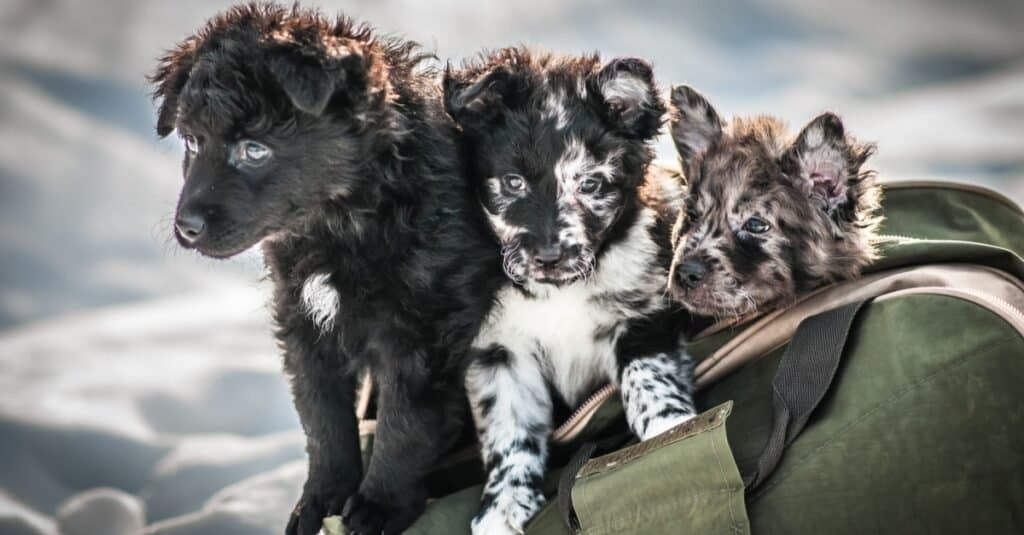
need a lot of space to run and play, just like the adult Mudi.
©Valkovich Olga/Shutterstock.com
Children
It’s true that these dogs are appropriate for families with children. However, if this breed is teased or mistreated even in a playful way, there’s a chance it will snap at the young person.
Similar Dogs
A few dogs similar to the Mudi are the Border Collie, Bouvier Des Flandres, and Belgian Shepherd.
- Border Collie – A lively temperament is something shared by these dogs. They are both herders, but Border Collies are bigger in weight and height.
- Bouvier des Flandres – Although this dog is much larger both in weight and height, it shares an affectionate temperament and high level of energy with Mudi dogs.
- Belgian Shepherd – This dog has a lifespan similar to the Mudi and has a lot of coat colors in common with it. But a Belgian Shepherd is a larger breed than the Mudi.
Popular Names
Popular names for this breed:
- Riley
- Tucker
- Bailey
- Lola
- Coco
- Penny
- Oscar
- Jack
Famous Mudi Dogs
Some celebrities in Hollywood are partial to this dog breed including:
- Movie actor Ryan Gosling
- Actor and comedian James Belushi
Mudi FAQs (Frequently Asked Questions)
What is a Mudi dog?
These canines originated in Hungary in the 19th century. This dog is best known for its herding abilities. In fact, it’s able to herd 500 sheep at one time. Its compact, muscled body allows it to run over long distances, turning quickly to catch up with straying sheep.
It has an affectionate, playful nature earning it a reputation as a good family dog. Its coat can be a variety of colors such as black, brown, gray, white, yellow, and grayish brown.
How much exercise do Mudi dogs need?
This dog does best with 60 minutes of exercise each day.
How much does a Mudi cost?
Most breeders charge quite a lot for Mudi puppies. The price is around $1300.
The yearly vet budget for this breed should be set between $500 to $1000.
Feeding this dog costs from $50 to $100 each month.
Are Mudi dogs rare?
Yes. It’s estimated there are just a few thousand of these dogs in the world. Compare this to 20,000 Golden Retrievers living in the United States alone!
The rarity of this breed is reflected in the cost of puppies. The price for a puppy is an average of $1300.
How long does a Mudi live?
This breed has a lifespan of 12 to 14 years.
Are Mudi dogs good with kids?
Yes, these dogs are good with children.
Do Mudi dogs get along with other dogs?
Yes, they do. This is yet another one of those facts that make this breed so endearing.
Is the Mudi dog hypoallergenic?
No, it’s not hypoallergenic.
Are Mudi dogs easy to train?
Yes! They pick up their obedience training lessons very quickly.
Thank you for reading! Have some feedback for us? Contact the AZ Animals editorial team.
Sources
- American Kennel Club, Available here: https://www.akc.org/dog-breeds/mudi/
- The Spruce Pets, Available here: https://www.thesprucepets.com/pumi-dog-full-profile-history-and-care-4740667
- Dog Lime, Available here: https://doglime.com/mudi-dog-training/

